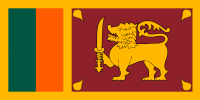Total population
2140
Literacy rate
Smart phone use frequency
Few
1. Few
Smart phone primary users
Youth and farmers
Mobile broadband coverage
Variable strength/Average
3. Variable strength/average
Mobile internet use frequency
Small minority
2. Small minority
Mobile internet primary users
Youth and farmers
Main purpose(s) of internet use by village residents (at least once a month)
Ranhotikanda’s residents mainly use their mobile phones for social media, information (such as market prices and weather) and social/community activities.
Main social medial tools (or platforms) used by village residents
Whatsapp and mainstram social media platform
Social media platforms use for marketing, commercial, data exchange or other services or types of activities (what, by whom and frequency)
Main livelihood occupations (crop types, fish, livestock, agrifood, etc.) practiced by village residents
Main farming activities
Farmer (tea, livestock)
Main agri food activities
Other livelihood activities (outside farming)
Local entrepreneurs
Digital solutions available (or used) in Village (or by local residents)
Automated Tea Leaf Collection System
Featured Digital Solution
Name
Automated Tea Leaf Collection System
Name of Lead Developer/supplier (and partners)
Panilkanda Tea Factory & Smart Metro Company
Lead developer category
Multi-partners
Multi-partners
Delivery type
Mobile app
Primary users
Tea farmers and tea collectors
Number of users/subscribers (at village/local area level)
200-300 farmers
Development stage category and description
Commercial stage (limited use)
Commercial stage (limited use)
Digital category
Digital Finance
Indicate if the highlighted "top digital solution" is linked to (or part of) government, private, or multi-partner initiative, project or programme
Multi-partner initiative
Main issues, needs, or priorities faced (or expressed) by villagers in accessing, and/or using digital solutions, services, or innovations (examples: reliability/strength/slow internet connection; access through local language; lack of adatpation to needs; urgently needed services not available, accessible, affordable, etc....)
Village survey by FAO found a limited digital literacy and lack of awareness of digital applications. The village also requires more applications that provide data and advisory services for prices, weather forecasts and early warning systems, digital portals for government support services and digital technologies at farm level which include market linkage platforms. More stable internet connectivity through improved digital infrastructure is also needed along with affordable, subsidized access to digital applications to improve uptake
Other relevant information, data, statistics, links, application history etc.
Over the last 4 to 5 years, approximately 200 - 300 farmers have registered with Panilkanda Tea factory through the app and this initiative has now garnered interest from other tea factories looking to replicate the same system in their supply chain

 Sri Lanka
Sri Lanka